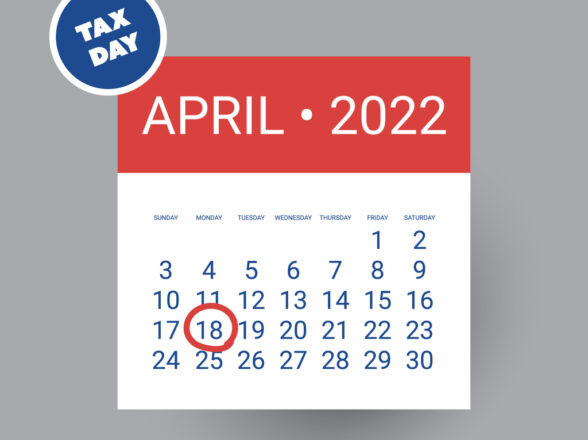Blog
Financial Considerations When Changing Jobs

When you change jobs, there are a number of important financial points to consider. It’s natural to focus on your salary and whether it’s higher or lower in your new job. However, there are quite a few other factors that can have just as much impact on your financial well-being.
Review Company Benefits at Your New Job
Benefits are an important part of your compensation. The following are some key benefits to analyze and to compare with your previous (or current) job.
- Healthcare —One of the most valuable benefits and one that impacts your whole family. Be aware of when your old coverage ends and when new coverage begins. You may need to sign up for some kind of interim plan.
- Vacation and paid time off.
- Paid family leave —Valuable for anyone starting a family.
- Flexible hours —More companies are offering employees a flexible schedule, which helps you create a better work-life balance.
- Remote work/telecommuting —Many companies began offering these options due to COVID-19, but it’s a trend that’s been growing for some years now.
- Health and fitness perks such as a fitness center on the premises or free/discounted gym membership.
- Tuition reimbursement.
You need to consider which benefits are most important to you. For example, if your spouse has great health insurance that covers you, your healthcare policy isn’t as important as it is for a single person. Similarly, benefits such as flexible hours and the ability to work at home are especially attractive if you have kids at home or have a business venture as well as your job.
Relocation Considerations
If you’re moving to a new location for your new job, there are some important factors to consider.
Relocation Costs
Depending on how far you’re moving, you may have substantial relocation costs. If you’re fortunate, your new employer will cover some or all of these. This is something worth asking about. Another point to keep in mind is whether you’ll be returning to your old city frequently to visit friends or family. This can be an ongoing expense you should factor in.
Cost of Living at Your New Location
You can’t think of your salary without also considering the cost of living. For example, if your new job pays 10% more than your last one, but you’re moving to a place with a 20% higher cost of living, you are actually in a worse position despite earning more. When you calculate the cost of living, look at trends as well as current statistics.
Future Potential
When comparing jobs, you should think of the long-term possibilities. What is the advancement potential at your new job compared to your old one? A slight increase in salary may not be worth it if your current job provides greater opportunities for growth and advancement. On the other hand, you may want to consider a cut in salary if a job provides more potential.
A larger company may provide more advancement opportunities, but this isn’t always the case. You have to look at the company’s policies regarding promotions. Do they tend to promote from within or hire outside the organization for higher positions?
When you’re comparing jobs, don’t only look at your salary. You also have to consider the training and skills you’re acquiring, which you can put on your resume. If either your old job or new one provides you with consistent training in new skills or applications, this contributes to your future earning potential no matter where you go.
Consider Your 401K and Pension
One important benefit of employment comes in the form of 401K, pension, and stock options that help you build your savings over time. When you change jobs, you have to consider the long-term financial implications. Some employers provide matching funds when you contribute. This makes a big difference in how much you can accumulate in the long run.
Some employers let you maintain your retirement plan when you leave the company. If not, you can rollover your plan into an IRA. This is better than cashing it out, which carries a hefty withdrawal penalty.
Identify Tax Implications
If there’s a significant difference in your salary between one job and the next, you could find yourself in a new income tax bracket. If you’re looking forward to a salary increase, keep in mind that your taxes will be higher. State income taxes may also be an issue as different states have different tax rates (and some states have no state income tax).
This is a good time to investigate possible deductions on your income taxes. You might also want to look at the tax implications of your investments. Consulting with a financial expert is recommended to make the best decisions.
Will There be a Gap Between Jobs?
When you think of changing jobs, your goal is to create a seamless transition from one job to the other. In reality, it’s difficult to time things so perfectly. It’s very common to have a gap between jobs, which also means a gap between paychecks.
If you only have a couple of weeks between jobs, it may not seem very significant. If you’re searching for a job or taking time off between jobs, however, you could be looking at months without a paycheck. When calculating your finances during this period, you have to factor in any such transition periods. If you know in advance that you’ll be facing a significant gap, it’s a good idea to put aside some money now to tide you over during this period.
Negotiating Your Salary
Negotiating for a higher salary is always a possibility. You may want to negotiate at your present job for a higher salary and/or additional benefits. If you’re seriously thinking of leaving your job, you have nothing to lose by asking. You can also negotiate the salary and benefits for a new position. Don’t assume that when you’re offered a position that you have to accept the terms without question. On the other hand, you have to be diplomatic in your negotiation as you don’t want to jeopardize the offer. Whether negotiating with an existing employer or a prospective new one, have a clear idea in your mind about what you’re willing to accept.
Consider All the Implications When Changing Jobs
Changing jobs has many consequences for your financial future. Make sure you don’t overlook key issues such as benefits, investments, and taxes when calculating the costs and benefits. The more you plan in advance, the smoother the transition will be from the old job to the new one.
Infinitum Investment Advisors provide investment guidance and wealth management on your terms. To learn more about our services, contact us.





























































































